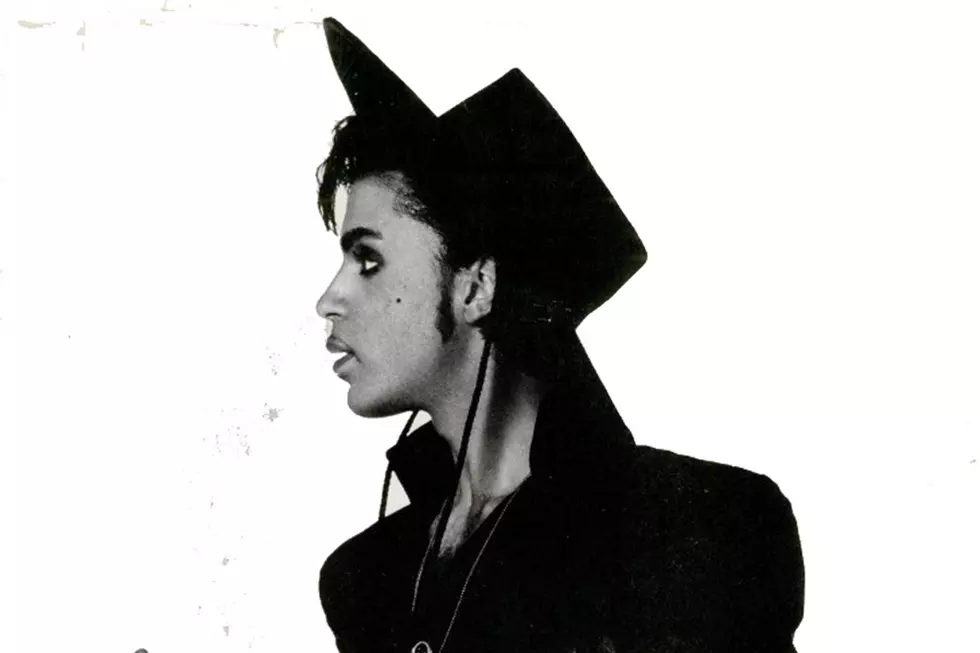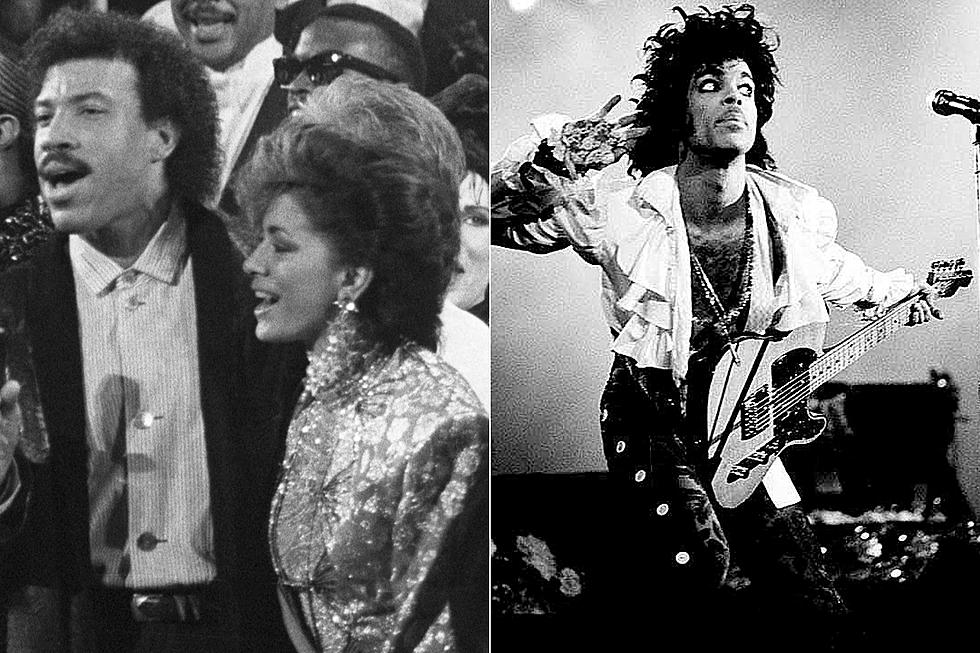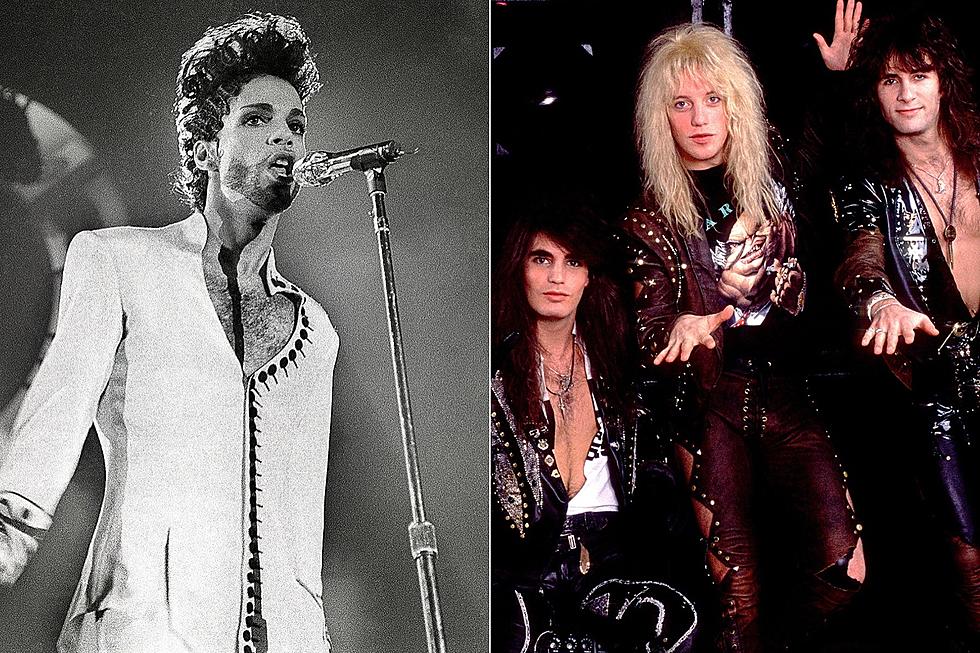
How ‘Mountains’ Became a Last Hurrah for the Revolution
Prince's Parade was both the zenith and basically the end of his tight musical bond with Wendy Melvoin and Lisa Coleman. He once called the duo his "musical shadows," and on stand out moments like "Mountains," it became clear just why.
"Mountains" arrived as part of a project that wasn't released as a double album, but certainly played like one. There is an astonishing variety of musical styles over just 12 songs – from the starchy funk of "Kiss" to the eye-popping color palette of "Christopher Tracy's Parade" to the slinky cabaret-pop of "I Wonder U." Released on May 7, 1986, as the second single from Parade, "Mountains" rose to the Top 25 on its ability to combine that eclecticism with the classic Revolution sound which originally hurtled Prince to wider notice.
Credit a torrid music bed from Melvoin and Coleman, who set the stage for something that seemed, at first, like a full-circle moment. Coleman had been in Prince's band – not yet known as the Revolution – since nailing an impromptu audition in 1979. Melvoin replaced Dez Dickerson in the aftermath of 1982's 1999. Something clicked, as the next three albums sold a whopping 13 million copies in the U.S. alone.
"We worked with him more than anyone else," Coleman told the Los Angeles Times in 1987. "For a while, we were just about the only people he worked with. We were Prince's embellishers. We embellished his musical vision."
Along the way, they earned co-writing credits on a pair of Purple Rain-era songs, including "Computer Blue" and "17 Days," a cherished b-side to "When Doves Cry." From there, they collaborated on "America" from 1985's Around the World in a Day, and then two tracks on this 1986 follow up, "Mountains" and the album-closing "Sometimes It Snows in April." Melvoin also sang lead vocals on "I Wonder U" from Parade.
Their initial bond was as ardent as it was unshakeable. "It’s silly, us all being so intense about it and swooning over each other, but it’s meaningful," Melvoin told Rolling Stone in 1986. "Not that the rest of the band doesn’t understand Prince – they do. We’re just a bit more spiritual with him."
Parade found Prince beginning to turn away, however, from the overt psychedelia of Around the World in a Day – to say nothing of the guitar pyro of Purple Rain. He didn't even include the typical house-party jam, though "Mountains" – added almost seven months after work began in earnest – got pretty close. Things were already changing, that much is now certain: "Mountains," for instance, saw the debut of both guitarist Miko Weaver and trumpeter Matthew Blistan, who the increasingly restless Prince dubbed Atlanta Bliss.
Melvoin and Coleman later collaborated with Prince on a song called "Power Fantastic" for the proposed Revolution album Dream Factory. But as tensions mounted, the project was shelved. Prince asked Melvoin and Coleman over to dinner, and told them the Revolution was no more. Their final show together had been in Japan on Sept. 9, 1986, an appearance that ended with Prince furiously smashing his guitar. "If we had been looking, there were probably signs," Melvoin told the Times. "But maybe the signs were there and we just didn't want to see them."
In short order, the Revolution disappeared – quite literally. Prince quickly replaced drummer Bobby Z with Sheila E., then bassist Brownmark quit. The bulk of Dream Factory was either locked away or painstakingly re-recorded for 1987's Sign 'O' the Times. "We listened to it like, 'Oh wow – we are gone,'" Coleman later remembered. "It was like a breakup and seeing your boyfriend with another girl."
The glory years with Prince – begun just three years earlier at an Aug. 3, 1983 show at First Avenue in Minneapolis – hadn't lasted long. Matt Fink became the last of the classic-era members of the Revolution to exit in 1991. That left "Mountains" as the final charting example of what they could do together during this brief, but incredibly fruitful moment in time.
"Being in a band with Prince was like holding onto the tail of a comet," Coleman admitted, in that talk with the Times. "It was great, until it flamed out."
Prince Magazine Ads Through the Years: 1978-2016
More From Ultimate Prince










